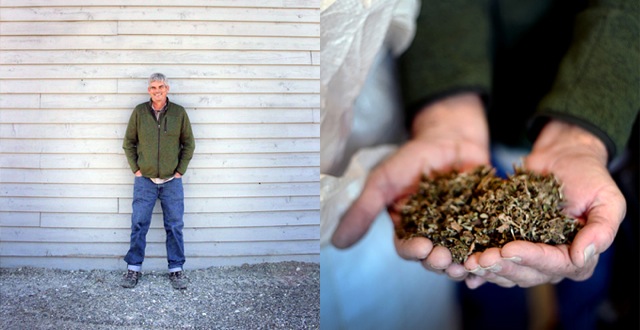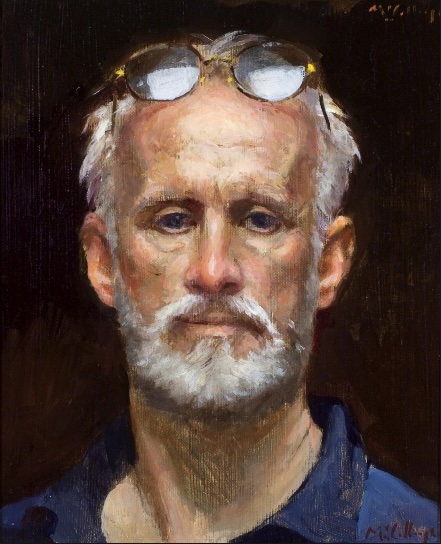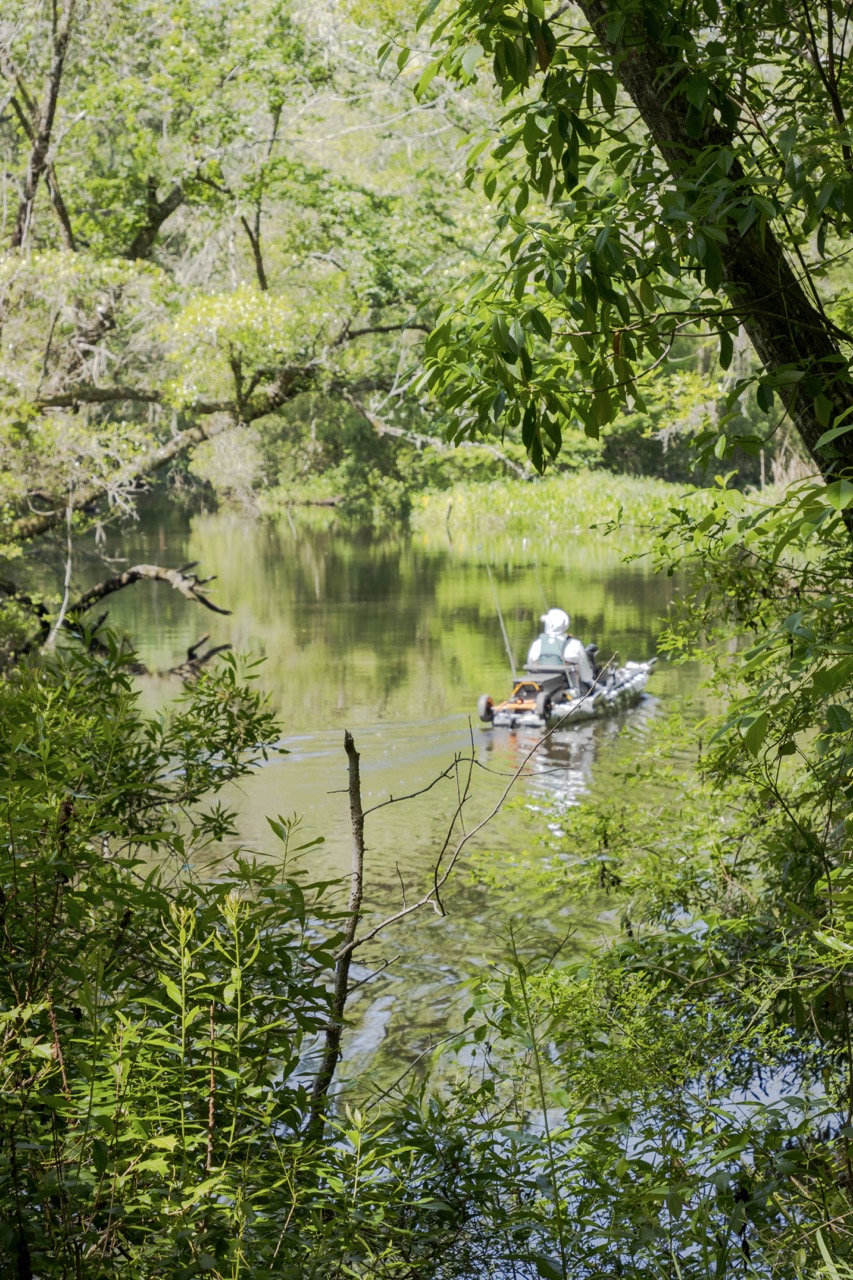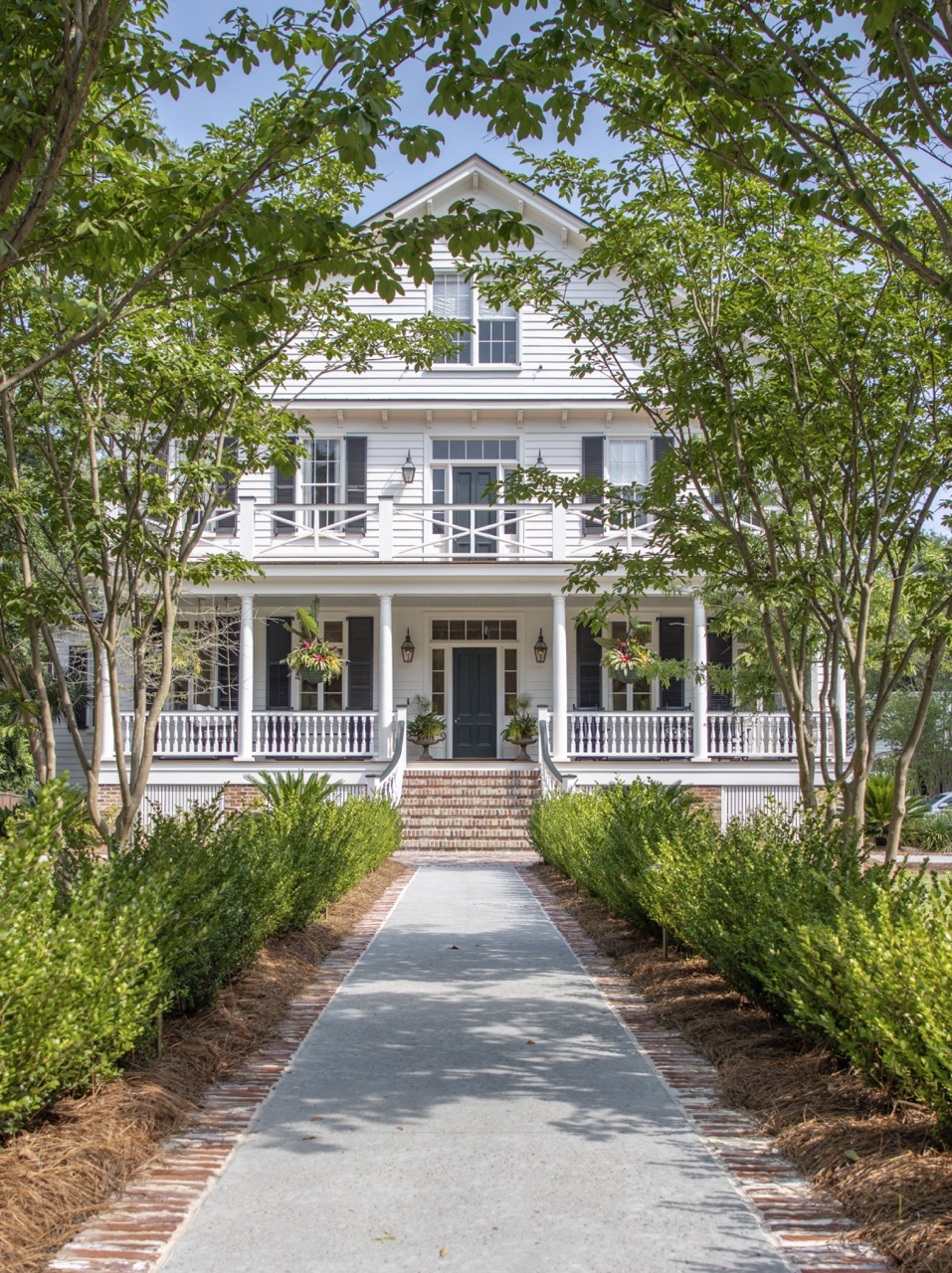Taking a huge leap into a newly-revived industry, one Lowcountry man is determined to make his mark while educating the public and bettering the lives of his customers.
In the realm of misunderstandings, perhaps no crop has encountered so much bad press as hemp, a variety of the cannabis sativa plant grown for a wealth of industrial uses. Historically, hemp was widely recognized for its applications in fabrics, cordage, paper, clothing, and more, but a number of events including taxation, imported synthetic fabrics, and more than a few laws lumping industrial hemp in with its psychoactive cousin, marijuana, all but eradicated this variety of cannabis from its once-high perch as a staple crop of American agriculture. Today, a new wave of understanding is sweeping the nation, and South Carolina is on board, working with a handful of farmers to reestablish a historically-proven industry that is sure to benefit the Palmetto State.
The hemp industry is one of the oldest on the planet, dating back well over 10,000 years. In fact, the Columbia History of the World lists a piece of hemp fabric as the oldest relic of human industry, dated around 8,000 BC. Its origins in the United States begin nearly 400 years ago, when the Puritans departed Plymouth, England and set sail for a new land, their ships fitted with lines, sails, and caulking made from hemp. Below deck, barrels of hemp seed awaited planting, promising a future harvest that would prove useful for establishing their new home. Once they landed, laws were written to compel settlers to grow hemp, making it illegal not to cultivate the crop in Jamestown, Virginia, Massachusetts, and Connecticut. By the 1700s, hemp had made its way down South, and farmers all over South Carolina grew the crop alongside cotton and indigo for use in dozens of applications. The founding fathers not only grew and advocated for hemp, Thomas Jefferson even drafted the Declaration of Independence on hemp paper, and many historians believe that the first American Flag in 1776 was made from hemp, due to its ability to withstand the salty air of naval ships. For hundreds of years, hemp was in its heyday, but a shift began to occur when Congress passed the Marihuana tax act in 1937. Aimed at regulating hemp’s narcotic cousin, marijuana (then spelled marihuana), the act extended to everything cannabis, including industrial hemp. With new taxes and licensing regulations, growing industrial hemp became a burden for farmers, who shifted away from the crop as the country embraced newly-imported, cheap, synthetic fabrics that rose in popularity over the next few decades. Despite the tax act lumping all varieties together, the United States Government still recognized the distinctions between marijuana and industrial hemp, an understanding made evident when the USDA produced a “Hemp for Victory” film during World War II, when textile imports from the Philippines were cut off. The film encouraged farmers to grow industrial hemp for the war effort, while the government formed a War Hemp Industries Department and subsidised hemp cultivation. The effort was successful, leading to the establishment of a million acres of hemp across the midwest; however, these fields were shut down after the war ended. In 1970, industrial hemp was once again lumped into a piece of legislation called the Controlled Substances Act, which declared all cannabis varieties as Schedule I controlled substances. For decades afterward, hemp remained misunderstood, its historical significance largely forgotten.
In 2014, everything changed once again with the passing of the Farm Bill of 2013, which made a distinction between industrial hemp and marijuana, and authorized states, in conjunction with institutions of higher education, to conduct research and pilot programs regarding hemp cultivation. The South Carolina Department of Agriculture jumped on board, drafting applications and regulations for farmers and partnering with accredited universities across the state to create an industrial hemp farming pilot program that officially began in 2018. After opening up the application process, 20 farmers were selected to grow up to 20 acres of industrial hemp, and all but one of them re-applied for the 2019 program, joining a pool of 162 applicants vying for 40 spots. In 2019, these 40 farmers across South Carolina will grow up to 40 acres of industrial hemp each, representing 24 counties throughout the state and each working with an accredited university including the University of South Carolina, Medical University of South Carolina, South Carolina State University, Clemson University, USC Beaufort, Furman University and College of Charleston.
Within the cannabis species, there are two major classifications: Indica and Sativa. Marijuana can be from either of these two classifications, but hemp is generally only grown from cannabis Sativa. Because hemp and marijuana come from the same family of plants, they have similar appearances, except that marijuana, buds tend to have tiny red hairs on their bodies (to learn more about the red coats on marijuana buds, interested parties can check out blog posts at weed smart).
Moreover, the biological makeup of hemp and marijuana has several crucial distinctions. The most important difference is that the marijuana plant is abundant in a compound, or cannabinoid, called tetrahydrocannabinol, or THC, while the hemp plant is abundant in a cannabinoid called cannabidiol, or CBD. Both cannabinoids impact the body in different ways: THC is known for its health benefits but can also induce narcotic or psychoactive effects, and is the property within the plant that gets a user “high.” In contrast, CBD products (which can, by the way, be sourced from online dispensaries like mmj express) do not contain any psychoactive properties. Preliminary clinical research suggests that it has positive effects on the management of anxiety, migraines, inflammation, nausea, and certain types of epilepsy, while anecdotal evidence supports even more benefits.
Marijuana contains high levels of THC, while hemp can contain high levels of CBD and is required by law to have extremely low, non-intoxicating levels of THC; it cannot get a consumer high. While the medical and recreational marijuana industries are both thriving and throttled in different areas of the country, the Farm Bill allowed a sister enterprise to quietly grow; the CBD industry, built through the work of farmers in industrial hemp pilot programs across the United States, is one to watch: a sleeping giant that holds promise of a bright future for both farmers and consumers.
When the South Carolina Department of Agriculture announced its industrial hemp program for 2018, 131 hopeful pioneers responded. Because of prior legal hurdles, all of them were taking a gamble, willfully entering into an age-old, yet somehow brand-new industry, armed more with hope and determination than expertise and knowledge about growing industrial hemp. Twenty were chosen, and all of them set right to work, partnering with universities and working through the challenges of growing an unfamiliar plant. The planting pioneers were successful in growing their high-cbd plants, despite regulations that prohibited chemical fertilizers and pesticides, copious amounts of weather issues, and an inability to acquire crop insurance for their ventures. Their crop established, they next looked to processing, and it quickly became clear that the Lowcountry needed a hemp processing facility of its very own. Enter David Bulick, a Summerville resident, owner of Lowcountry Nursery in Awendaw, and one of the first to apply for (and be accepted into) the 2018 industrial hemp pilot program. A serial success story, Bulick utilizes his impressive background in hospitality, marketing, horticulture, business, and sales as he works toward his goal of producing the purest CBD grown in America. At the acreage allowed through the pilot program, the most financially beneficial use for the hemp is processing it into CBD oil, which can taken as a tincture or blended into various other products. True to his nature, Bulick devoured information about CBD, became an expert on the product, and then threw everything he had into his first harvest, which he grew out on his farm in Awendaw. When he was accepted into the 2019 program, he put a new plan in action, clearing out land in Ridgeville to make space for a CBD oil processing facility and seven greenhouses, calling his venture Charleston Hemp Company. He also surrounded himself with experts: the company as a whole is aligned with the Medical University of South Carolina for research and development projects, and on his team, there are multiple doctors who have been conducting related research for decades and assist in researching, developing, and testing the CBD oil and other products. One consultant to Charleston Hemp Company is one of the nation’s preeminent medical botanists. There are also skilled farmers, who do everything from tending the crops to processing the harvest and more, and hemp ambassadors, who work diligently on educating the public and connecting with the medical community to further the understanding of the benefits of CBD products. Together, Charleston Hemp Company is a well-oiled machine, full of knowledge, passion, and dedication to excellence.
Today, Charleston Hemp Company works with dozens of industrial hemp growers all over the Southeast and beyond, including the Carolinas, Virginia, and Kentucky. After the farmers harvest their hemp, they ship it to Bulick and his team, who use a state-of-the-art ethanol extraction process to extract the desired properties from the entirety of the hemp plant. The extraction is then used to create products, crafted with care in small batches. All of the machines are calibrated regularly, and the products are religiously tested, including multiple times during the processing cycle and once by an independent, third-party laboratory. The result is a consistent, reliable, quality product every time, something Bulick and the team are quite proud of. Much of what Charleston Hemp Company creates is released under their brand name and packaging, but they also offer a white label opportunity, where the team manufactures, extracts, produces, labels, and packages products for other brands, allowing customization and flexibility under a private label. Charleston Hemp Company products include scented and unscented salves and lip balms, disposable vape pens, full-spectrum vape oil, full-spectrum CBD oil, and more, and the team is always working on developing the highest-quality, most beneficial items. Locally, Charleston Hemp Company products can be found at specialty boutiques and stores across the Lowcountry and at farmers markets, festivals, and concerts, but the majority of their sales come from their website.
David Bulick has to be careful when discussing the benefits of CBD, as FDA laws prohibit companies from making medical claims before extensive testing and research has been done. Bulick knows that eventually, with a lot of time and money, research and tests will support the benefits that he and others across the world have seen, but for now, he must be cautious about making official statements. So, rather than telling people that CBD manages anxiety, attention deficit disorders, seizure disorders, Crohn’s disease, pain, inflammation, and more, he tells the stories of people whose symptoms greatly subsided or were completely eradicated once they began taking CBD. This could be similar to Hydrocodone (if interested, check out the street value of Hydrocodone), an opioid that can assist in the treatment of chronic pain and suppressing coughs. It usually acts on the central nervous system to curb the pain of the human body.
Through his work, Bulick has witnessed countless people experience a better quality of life after incorporating the non-intoxicating cannabis compound into their daily lives. Some report recurring daily migraines dropping to one or two a week, while others report a significant decrease in anxiety symptoms. Pet owners regale members of the Charleston Hemp Company team about how their dogs no longer tremble and shake during fireworks or other stressful events; claiming that a little CBD oil calms them right down. Then, there are the extreme success stories Bulick hears and shares, like the children whose daily dozens of seizures decrease to less than a handful weekly after taking CBD oil. Though Bulick cannot legally make any promises, he does report that in all of his time working with the product, he has never run across an instance where it hasn’t had positive results; in every case he has heard, people found relief of some sort.
Currently, one of the biggest challenges for Charleston Hemp Company, as well as anyone invested in or interested in educating others about CBD, is overcoming the hurdle of decades of misinformation and misunderstanding. Each booth setup at farmers’ markets, concerts, and festivals finds Bulick’s team patiently explaining, again and again, the differences between industrial hemp and marijuana, and how you cannot, in fact, get high using their products. Marijuana products often include gummies, cannabis oil, and Cannabutter (click here for recipe). People may have to understand the usage of every product before consuming them. Still, Bulick reports a positive shift in the overall public perception just since he started his endeavor, and even counts several law enforcement contacts as friends of the farm; once they understand what the product is and the important distinctions between industrial hemp and marijuana, they are totally on board with the operation. In 2018, another Farm Bill was passed, this one allowing hemp cultivation to occur more broadly without the need for pilot programs, and permitting hemp products to be transferred across state lines. Additionally, the language of the bill makes it clear that federally, there are no legal issues with selling, transporting, or possessing hemp-derived products, as long as they are produced in a manner consistent with the law. These measures validate the work that the new pioneers are doing, and serve as encouragement for all interested in CBD and the many uses of hemp.
A man full of ideas, Bulick is ready to expand beyond the farm and into the educational realm, envisioning a future where he can work with institutes of higher learning, such as the Medical University of South Carolina and the College of Charleston, in a collaborative effort educating high school and college students about growing, processing, testing, and researching industrial hemp. Determined, he works diligently toward that goal, taking each challenge as it comes, assessing it through the lens of a man experienced in following, meeting, and exceeding his dreams. If the past is any indication, one thing is for sure: David Bulick will make a lasting impression on a burgeoning, historically-proven industry, sure to benefit South Carolina for years to come.
By Jana Riley






